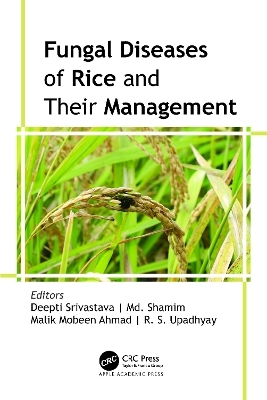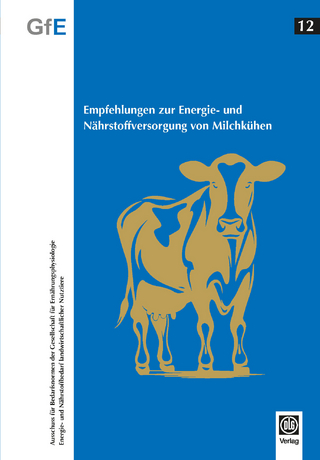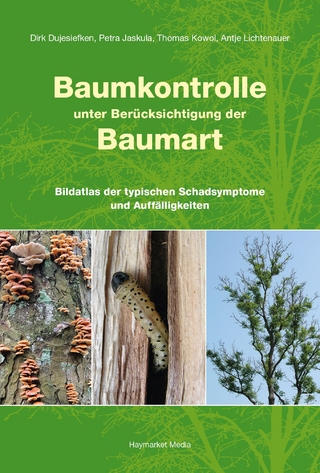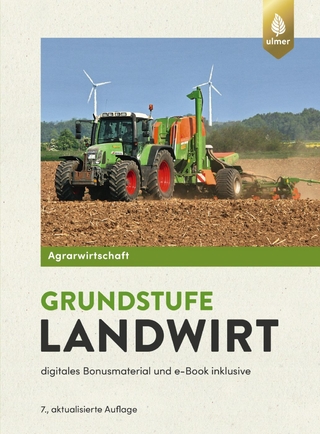
Fungal Diseases of Rice and Their Management
Apple Academic Press Inc. (Verlag)
978-1-77491-247-8 (ISBN)
Rice is a widely consumed crop around the world that has tremendous importance and is cultivated almost everywhere except Antarctica. However, various biotic and abiotic stresses have a negative effect on rice cultivation, seriously reducing its yield. This volume examines the bacterial and fungal pathogens that cause rice diseases and explores how to manage these diseases. It covers the economic and environmental impact of rice fungal diseases on global food security and proceeds to delve into diagnostic methods for rice fungal pathogen detection and discusses current strategic and applied biotechnological methods for the effective management of rice fungal diseases.
Deepti Srivastava, PhD, is Assistant Professor in the Department of Agriculture at Integral University, Lucknow, India. She is the author and co-author of research articles, book chapters, and several books. Her major research area involves plant biotechnology and molecular breeding in rice. Dr. Srivastava previously worked at the CSIR-National Botanical Research Institute, Lucknow, where she was engaged in the development of hybrids of cotton. Her current research work includes development of drought and heat-tolerant rice varieties. Md. Shamim, PhD, is Assistant Professor and Jr. Scientist in the Department of Molecular Biology and Genetic Engineering at Bihar Agricultural University, Sabour, India. He is the author or coauthor of journal articles, book chapters, and conference papers as well as several books. Dr. Shamim previously worked at the Indian Agricultural Research Institute, where he was engaged in heatresponsive gene regulation in wheat, and at the Indian Institute of Pulses Research, where he worked on molecular and phylogeny analysis of several Fusarium fungus of pulses. He currently specializes in the area of biotic stress management in rice. Malik Mobeen Ahmad, PhD, is Assistant Professor of Microbial Biotechnology at Integral University, Lucknow, India. With his expertise in the area of microorganisms, he oversees the development of ready-to-use diagnostic kits for mycotoxins or other toxins produced in food crops of importance to developing countries. He has published over 20 scientific papers in national and international journals and five books. His current research focuses on bioprospecting of novel bioactive metabolites from endophytic fungi and their biotransformation. R. S. Upadhyay, PhD, is a Professor of Botany (since 1997) at Banaras Hindu University, India, where he is also the Programme Coordinator of the Centre of Advanced Study in Botany. A prolific author and academic mentor, he has published over 140 research papers, over 60 book chapters, and several edited books. He has carried out collaborative research at prestigious institutes in India, USA, and UK and has received several honors and awards for his works. Dr. Upadhyay is credited with the discovery of the perfect state of Fusarium udum, the causal agent of the wilt of pigeon pea.
1. Economic and Environmental Impact of Rice Fungal Diseases on Global Food Security 2. A Review on Diagnostic Methods for Rice Fungal Pathogens 3. Investigation of Ecology, Molecular, and Host-Pathogen Interactions of Rice Blast Pathogens and Management Approaches 4. A Review of Conventional and Molecular Approaches for the Management of Rice Blast Disease 5. Computational Deciphering of Blast Resistance Genes Rice 6. An Update on Epidemiology of Sheath Blight Pathogen of Rice and Its Management 7. Insights from Genetics, Breeding, and Molecular Approaches for Rice Sheath Blight Disease Resistance 8. The Current Scenario, Progress, and Prospects of Bioinformatics for Rice Sheath Blight Disease Resistance 9. An Overview of Ecology, Epidemiology, and Identification Measures for Rice Sheath Rot Disease 10. Research Status and Prospectus of Sheath Rot Disease Resistance in Rice 11. Rice Brown Spot Disease (Helminthosporium oryzae): Ecology, Epidemiology, and Identification Measures 12. Comparative Analysis of Conventional and Molecular Methods for Rice Brown Spot Disease Resistance 13. Ecological Status and Biology of Rice Kernel Smut Pathogen 14. Current Scenario of Progress and Prospects for the Management of Rice Kernel Smut Disease Resistance 15. Identification and Pathogenic Diversity of Rice Smut Pathogen and Their Resistance Resources for Future Breeding 16. Emerging Biotechnological Tools for Rice Bakanae/Foot Rot Disease Resistance 17. Potential of Bio-Control Agents for the Sustainable Management of Rice Fungal Diseases 18. New Insights from the Bioinformatics Tools for Rice Fungal Disease Resistance
| Erscheinungsdatum | 11.01.2024 |
|---|---|
| Zusatzinfo | 25 Tables, black and white; 5 Line drawings, color; 2 Line drawings, black and white; 9 Halftones, color; 4 Halftones, black and white; 14 Illustrations, color; 6 Illustrations, black and white |
| Verlagsort | Oakville |
| Sprache | englisch |
| Maße | 156 x 234 mm |
| Gewicht | 940 g |
| Themenwelt | Schulbuch / Wörterbuch |
| Technik | |
| Weitere Fachgebiete ► Land- / Forstwirtschaft / Fischerei | |
| ISBN-10 | 1-77491-247-3 / 1774912473 |
| ISBN-13 | 978-1-77491-247-8 / 9781774912478 |
| Zustand | Neuware |
| Informationen gemäß Produktsicherheitsverordnung (GPSR) | |
| Haben Sie eine Frage zum Produkt? |
aus dem Bereich


